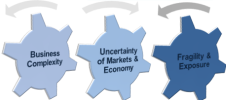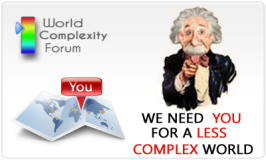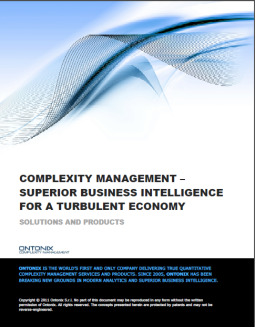Updated – Complex Systems and Ecology: Report by US National Academies…
Tuesday, 31 August, 2010 Leave a comment
If you don’t already know WHY I am so intent upon “banging on” about complex systems then you must have stumbled upon this item quite by chance! If so…welcome! I sincerely hope that you will take on board a lesson that WE NEED TO LEARN.
But this blog is not merely about recycling someone else’s words just to look smart or well-informed. There is a “greater purpose” and that is to alert people, not just to the problem but to the solution that we, at Ontonix have developed. S-l-o-w-l-y an understanding of the need for an entirely new view is gathering momentum and Ontonix have the tools to: map interdependencies; measure [their] effectiveness; manage robustness; monitor complexity within systems. Conventional risk management tools, risk and rating methodologies are no longer adequate.
Quantitative Complexity Management is advanced risk management
Well before this recent crisis emerged, the US National Academies/National Research Council and the Federal Reserve Bank of New York collaborated on an initiative to “stimulate fresh thinking on systemic risk”. The main event was a high-level conference held in May 2006, which brought together experts from various backgrounds to explore parallels between systemic risk in the financial sector and in selected domains in engineering, ecology and other fields of science. The resulting report was published late 2007 and makes stimulating reading.

 Companies Complete Test of New Global Greenhouse Gas Accounting Standards
Companies Complete Test of New Global Greenhouse Gas Accounting Standards












